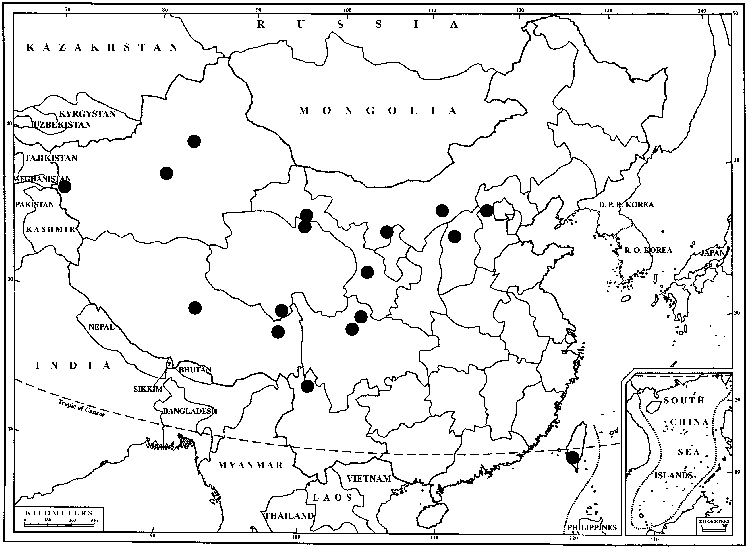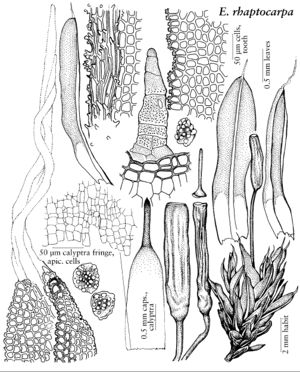Difference between revisions of "Encalypta rhaptocarpa"
Sp. Musc. Frond. Suppl. 1(1): 56. 1811,.
FNA>Volume Importer |
imported>Volume Importer |
||
| (One intermediate revision by the same user not shown) | |||
| Line 61: | Line 61: | ||
|publication year= | |publication year= | ||
|special status= | |special status= | ||
| − | |source xml=https:// | + | |source xml=https://bitbucket.org/aafc-mbb/fna-data-curation/src/2e0870ddd59836b60bcf96646a41e87ea5a5943a/coarse_grained_fna_xml/V27/V27_231.xml |
|genus=Encalypta | |genus=Encalypta | ||
|species=Encalypta rhaptocarpa | |species=Encalypta rhaptocarpa | ||
Latest revision as of 21:25, 5 November 2020
Stems 10–30 mm, central strand absent. Leaves oblong-lanceolate, 2.5–3.5 mm, apices acute to short-acuminate, mucronate to hair-pointed; margins plane; costa percurrent to long-excurrent, smooth distally; laminal cells quadrate to subhexagonal, 12–20 µm; basal cells rectangular, 20–70 µm, smooth; basal marginal cells not differentiated. Specialized asexual reproduction absent. Seta 8–10 mm, reddish brown. Capsule cylindric, 2.5–3 mm, ribbed, brown to brownish red, ribs dark red; peristome single, reddish brown, teeth lanceolate 0.5 mm high, papillose, occasionally with a preperistome ring of very short and stubby projections, papillose, erect and brittle; operculum 0.5 mm. Calyptra 3–4 mm, entire to erose at base, smooth to papillose proximally, papillose on rostrum. Spores 35–40 µm, warty, brown.
Habitat: Soil or soil over rock
Distribution

Greenland, Alta., B.C., Man., N.B., Nfld. and Labr. (Labr.), N.W.T., Nunavut, Ont., Que., Sask., Yukon, Alaska, Ariz., Calif., Colo., Idaho, Mich., Mont., Nebr., Oreg., S.Dak., Wash., Wyo., Mexico (Nuevo León and Zacatecas), Europe, c, e Asia (China, Japan, Kazakstan, Mongolia).
Discussion
Encalypta rhaptocarpa is widely distributed in the northern part of the flora area. It is somewhat similar to E. alpina, but differs in leaf shape and has a much longer excurrent costa, a peristome, and an entire or erose base on the calyptrae. Encalypta rhaptocarpa could be confused also with E. vittiana by the strongly ribbed and red color on the capsule, however E. vittiana has a shorter awn and fringed calyptrae. The peristome of E. rhaptocarpa generally presents as single row of reddish, broadly lanceolate teeth. Careful examination of some specimens reveals a preperistome of very short, stubby projections ringing the outside of the main teeth.
Selected References
None.
